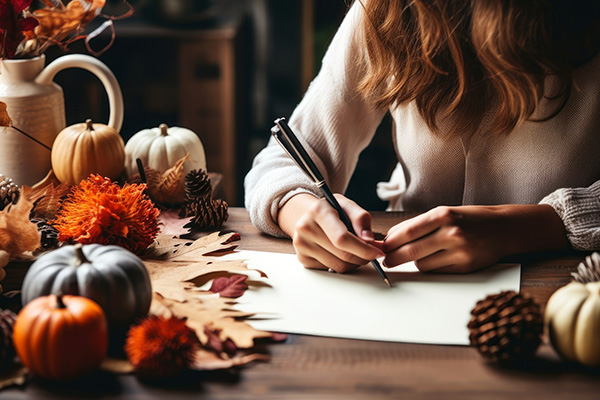journal
Change Your Habits, Change Your Life!
 As 2025 comes to an end and the New Year is upon is, many of us are considering how we can improve our lives and become a better version of ourselves.
As 2025 comes to an end and the New Year is upon is, many of us are considering how we can improve our lives and become a better version of ourselves.
Today we might be sitting with our shiny new diary or journal, or a beautiful 2026 calendar full of inspiring affirmations, in the hope it will inspire us to lead healthier, happier, more fulfilling and successful life. But the single biggest thing that we can do to change our lives for the better and really smash our goals is to change our habits.
What we habitually do is who we will ultimately become. Our daily physical habits are our metaphysical destiny. In fact, research would suggest that approximately 95% of the things people do daily are purely habitual.
From the spiritual perspective, I always look to archetype of The Archer in the Wildwood Tarot deck as the positive symbology to help me break bad habits and create new, better ones.
The Archer is a genuinely motivating card that symbolizes strength, direction, aim and focus. When it comes to habits, it reminds us to focus on the positive ones and that by doing so, we will achieve our goals by hitting our target. Gaze upon his symbology, and it should help give you the strength to do so.
For example, I am a chocoholic, the results of which is clearly evident around my middle-aged waistline! How do I personally break the habit of a lifetime and develop a healthier relationship with chocolate? Well, the guidelines are the same for any other goal we may have:
Living Your Best Life With Lady Luck!
 Are you closely acquainted with Lady Luck, or is she a stranger to your life?
Are you closely acquainted with Lady Luck, or is she a stranger to your life?
To be lucky, or not, depends on your personal view on luck. If you see luck as being pure chance and something you have absolutely no control over, then this will become your reality experience.
Should you, on the other hand, see luck as that moment when opportunity and careful preparation finally come together, then this should have a massive impact on how much good luck you receive in your life!
Search your memory for the last time you bought a lottery ticket and what went through your mind when you did? Did you just put it away, not think about it and tell yourself that you never win anyway?
Were your thoughts on something else, or did you conjure up some images as to how great it would be when you take your prize home? Hardly surprising what the outcome was, is it?
No, I am not suggesting you rush out and buy a load of lottery tickets and have blind faith that one, at least, will win big time, as that would also be the road to ruin. I am, however, suggesting that you try to adopt a more optimistic mind set as to what you can expect to attract into your life.
Our very beliefs define the energy frequency at which we vibrate and this, in turn, creates our attraction point. In simple terms, it is incredibly hard to attract good luck if you feel that you do not deserve it, or it is just downright impossible.
Spiritual Strategies For A Loving Relationship
 Over the years I have worked with many clients who either want to improve an existing relationship or manifest a new relationship.
Over the years I have worked with many clients who either want to improve an existing relationship or manifest a new relationship.
In my readings, I have seen that most of us carry patterns, energy blocks, or emotional knots that quietly affect our love lives. Many people describe the same inner cycle: a longing for deeper connection followed by fear, self-doubt, and frustration.
Depending on the needs to the particular individual or couple, I often recommend a few simple yet powerful practices that can shift the romantic energy field and open the heart.
These practices are gentle and effective, working not just on the emotional level but on the spiritual and energetic levels as well. They help clients reconnect with their inner wisdom and realign with love.
We tend to overthink our love lives. We analyze our relationships from every angle, hoping to find the answers in logic.
But love is not a puzzle to be solved. It is a frequency to be attuned to. And when we work with spiritual tools, we allow ourselves to rise above the clutter of thought and enter a state of clarity and openness.
I have found that the following practices, when done consistently, create a soft and supportive foundation for emotional healing and soulful connection. They do not require dramatic effort or complex rituals. They are simple shifts in intention and awareness that can lead to powerful outcomes.
The Manifesting Power Of Mindful Mornings
 Mornings are special. The energy of the morning is different than at any other time. When the sunlight is still fresh and gentle, the world is calm and quiet, there is a magic to this time. There is a softness that invites clarity, a gentle nudge from the universe to begin again, to step into a new day with intention and grace.
Mornings are special. The energy of the morning is different than at any other time. When the sunlight is still fresh and gentle, the world is calm and quiet, there is a magic to this time. There is a softness that invites clarity, a gentle nudge from the universe to begin again, to step into a new day with intention and grace.
The first few moments of our day help to set the tone for our experiences throughout. Becoming aware and attuned to this fresh universal energy can be as simple as creating a small morning routine.
Now, I realize not everyone loves the morning as much as I do. If this is the case for you, the idea of creating a morning routine may not sound appealing at all. Starting with small, quick steps can make all the difference here.
Your morning routine is meant to set you up for success. It is about doing things you like in the morning, that get you in the right frame of mind and heart.
Bringing a bit of mindfulness into your morning can set you up energetically to respond more effectively to your experiences throughout the day.
Below is a list of things you can do in the morning to create a personalized routine that works for you. You certainly don’t have to do all them! Just pick one or two to get started and build from there. While consistency is important, if something is not working for you, change it up and try something new. This routine should be fulfilling and meaningful to you.
The Power Of Creativity To Transform And Heal
 Creative play is a crack, or a doorway into another part of ourselves… into our intuitive and spiritual nature. To explore our creativity is to open that door of possibility.
Creative play is a crack, or a doorway into another part of ourselves… into our intuitive and spiritual nature. To explore our creativity is to open that door of possibility.
It is easy to doubt our creativity when we compare ourselves to others, and to great artists of the past. Through their life stories and work, the master artists left reminders, showing us that creativity is not something we are taught, but rather something we are. Tapping into this is about experiencing this for ourselves, in whatever form that may be.
I took up painting as a hobby in my late 20s. It began as a desire to learn to paint, although I held the belief that I wasn’t really creative, given my Finance and Accounting background. I had never considered Art to be healing, or that it held personal healing benefits.
At the beginning of my journey, I immersed myself in art books and read about other artists. I also joined a local art group. In class one day, I felt inspired to paint the Buddha. From the moment I picked up my brush to paint him, I could feel a presence by my side and I could see in the blank canvas the face that was to appear, long before it was visible to anyone else. That painting is the piece that changed the direction of my life path, as I embraced my creative and spiritual gifts.
Turning up to a blank canvas, is like saying yes to life and the unknown of what lays on our path. And there are many benefits of saying ‘yes’ to painting. Painting allows us to express ourselves through our work, it allows us a time and space to reflect on our life and the meaning we attached to our experiences.

